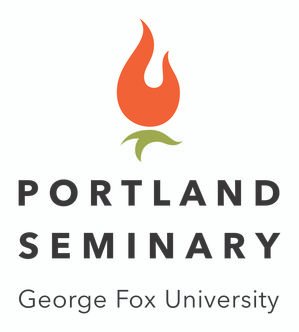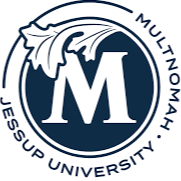
Theological Seminaries in Oregon
Find Oregon’s finest seminaries to pursue your ministry calling
Best Theological Seminaries in Oregon
Oregon offers a unique combination of natural beauty and academic rigor, making it an ideal place for pursuing theological education.
The seminaries in Oregon are dedicated to providing a comprehensive education that blends theology, biblical studies, and ministry leadership.
Whether you’re preparing for pastoral ministry, missions, or theological scholarship, Oregon’s seminaries offer the resources and support needed to grow both spiritually and intellectually in a nurturing environment.
Top Theological Seminaries in Oregon
Here are some of the top theological seminaries in Oregon, following the format you provided:

Portland Seminary at George Fox University
Location: Portland, OR
Denomination: Multi-denominational
Notable for: Now known as Portland Seminary, this institution is part of George Fox University and offers a range of graduate degrees, including the Master of Divinity (M.Div.), Master of Arts in Theological Studies (MATS), and Doctor of Ministry (D.Min.). The seminary is known for its focus on spiritual formation, social justice, and leadership development. With a strong evangelical and Quaker heritage, it emphasizes holistic spiritual growth, preparing students to serve in both traditional ministry roles and community-based leadership.

Western Seminary
Location: Portland, OR
Denomination: Interdenominational (Evangelical)
Notable for: Western Seminary is highly regarded for its biblical and theological rigor, offering degrees like the Master of Divinity (M.Div.), Master of Arts in Counseling, and Doctor of Ministry (D.Min.). With a strong evangelical commitment, Western Seminary equips students for leadership in churches, counseling ministries, and mission fields. Its flexible online programs and partnerships with churches make it accessible for students around the globe, focusing on academic excellence and practical ministry training.

Mount Angel Seminary
Location: Saint Benedict, OR
Denomination: Roman Catholic
Notable for: Mount Angel Seminary is one of the oldest and most respected Roman Catholic seminaries in the Western United States. It offers a wide range of degrees, including the Master of Divinity (M.Div.) and Master of Arts in Theology. The seminary provides rigorous academic training alongside spiritual formation, preparing men for priesthood in the Catholic Church. Known for its Benedictine heritage, Mount Angel focuses on a balance of prayer, study, and community life.

Multnomah Biblical Seminary
Location: Portland, OR
Denomination: Evangelical
Notable for: Multnomah Biblical Seminary, part of Multnomah University, offers graduate degrees such as the Master of Divinity (M.Div.), Master of Arts in Counseling, and Master of Arts in Biblical Studies. It is known for its strong evangelical focus and commitment to biblical literacy, theological depth, and discipleship. The seminary offers both traditional and online programs, making it accessible to a broad range of students. It also has a strong focus on mission work and global ministry training.

New Hope Christian College
Location: Eugene, OR
Denomination: Non-denominational (Evangelical)
Notable for: New Hope Christian College offers undergraduate and graduate-level theological education, specializing in preparing students for church leadership and ministry. Their Master of Ministry Leadership program focuses on pastoral training, church planting, and creative arts in worship. With a dynamic and hands-on approach, the school emphasizes leadership development, creativity in ministry, and the practical application of biblical principles.
Why Choose a Seminary in Oregon?
Choosing a seminary in Oregon offers several distinctive advantages for students seeking theological education and ministry training:

Innovative and Flexible Educational Models
Many of Oregon’s seminaries offer flexible degree programs that accommodate the needs of modern students. For example, Western Seminary and Portland Seminary provide online or hybrid options.
Commitment to Practical Ministry Training
Seminaries in Oregon provide robust practical ministry training through internships, field education, and partnerships with local churches and organizations.
Engagement with Contemporary Issues
Seminaries in Oregon are deeply engaged with contemporary theological and ethical issues such as gender equality, environmental stewardship, and interfaith dialogue.
(FAQs) About Theological Seminary in Oregon
Here are some Frequently Asked Questions (FAQs) about theological seminaries in Oregon:
Seminaries in Oregon offer a wide range of degree programs, including:
Master of Divinity (M.Div.) – The standard degree for those preparing for ordained ministry.
Master of Arts in Theological Studies (MATS) – Focused on theological research and academic study.
Master of Arts in Counseling or Ministry Leadership – Combines theology with practical skills for counseling and leadership in ministry contexts.
Doctor of Ministry (D.Min.) – An advanced degree for ministry professionals seeking to deepen their theological knowledge and leadership abilities.
Graduate Certificates – Short-term programs focusing on specific areas of ministry or theological studies.
Yes, many Oregon seminaries offer flexible online or hybrid degree programs. For example, Western Seminary and Portland Seminary (part of George Fox University) provide programs that combine in-person instruction with online coursework. These options are ideal for students who cannot relocate or need to balance work, family, and studies.
Oregon’s seminaries cater to a variety of Christian denominations, including:
Evangelical – (Western Seminary, Multnomah Biblical Seminary)
Quaker/Evangelical Friends – (Portland Seminary at George Fox University)
Roman Catholic – (Mount Angel Seminary)
Non-denominational – (New Hope Christian College) This diversity allows students to choose a seminary that aligns with their specific denominational background or ministry goals.
Tuition for Oregon seminaries varies, but typical costs range from $400 to $700 per credit hour for master's programs. Some schools offer financial aid, scholarships, and grants to offset tuition. Additionally, Oregon’s lower cost of living (compared to more expensive states like California) can make it a more affordable option for students.
Yes, most seminaries in Oregon offer a variety of financial aid options, including need-based and merit-based scholarships. Schools like Western Seminary and Mount Angel Seminary provide scholarships to eligible students, and many also participate in federal financial aid programs. Students are encouraged to apply for grants, work-study programs, and scholarships offered by denominational organizations or local churches.
Master of Divinity (M.Div.): Usually takes 3 to 4 years of full-time study.Master of Arts (MA) programs: Typically take 2 years to complete.Doctor of Ministry (D.Min.): Often takes 3 to 5 years, depending on the research project and pace of study.
Some seminaries offer accelerated or part-time options, allowing students to adjust their course load to fit their schedules.
Most Oregon seminaries require the following for admission:
A bachelor’s degree from an accredited institution.
A statement of faith or personal essay outlining the applicant’s calling and goals for ministry.
Letters of recommendation, often from pastors or church leaders.
Transcripts from previous academic work.
Some schools may also require an interview with the admissions team or faculty.
Graduates from Oregon seminaries pursue a wide variety of career paths, including:
Pastoral roles in churches (senior pastor, youth pastor, associate pastor).
Chaplaincy in hospitals, the military, and prisons.
Counseling in Christian counseling centers or private practice (for those with counseling degrees).
Mission work and community outreach (both local and international).
Teaching or academic research in theological schools or colleges.
Nonprofit leadership in faith-based organizations or community services.
Yes, practical ministry experience is a core component of theological education in Oregon. Seminaries like Western Seminary and Portland Seminary include internships, field education, and church placements in their programs. These hands-on experiences help students apply their theological knowledge in real-world ministry settings, preparing them for leadership roles in churches, nonprofits, or mission organizations.
Oregon seminaries typically have smaller class sizes, creating a close-knit, supportive community. Students build strong relationships with their peers and faculty, often engaging in personal mentorship and spiritual formation. The learning environment tends to be inclusive and ecumenical, with seminaries like Portland Seminary encouraging dialogue across denominations and theological perspectives.
Yes, Oregon seminaries have strong ties to local churches, faith-based organizations, and ministries. Many seminaries, such as Multnomah Biblical Seminary, work closely with local congregations, providing students with opportunities to intern, lead worship, and participate in church leadership. This connection to the local church community helps students gain practical experience while building valuable networks for future ministry roles.
Oregon’s natural beauty and culture of progressive values offer a unique environment for theological study. The state’s focus on environmental stewardship, social justice, and community engagement aligns well with the mission of many seminaries. Students can reflect on their faith in a serene setting, while also engaging with contemporary issues such as racial reconciliation, ecological justice, and urban ministry in a vibrant and diverse society.
